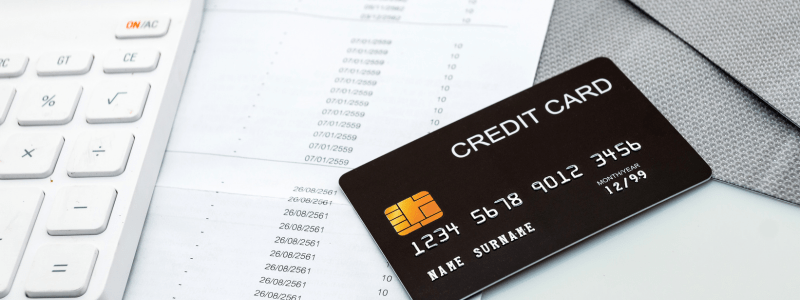Let’s talk about financial health. It’s a bit like physical health – you need to take care of it regularly to stay in good shape. One of the key aspects of maintaining robust financial health is understanding and managing your credit references. Ever wondered what is a credit reference and how it can boost your financial well-being? Let’s dive into the details.
What is a Credit Reference?
A credit reference is essentially a statement about your creditworthiness. Think of it as a character reference but for your finances. It provides lenders, landlords, and other entities with an assessment of how reliable you are when it comes to repaying debt.
Types of Credit References
There are different kinds of credit references that you might come across:
Personal References
These are usually provided by individuals who know you personally, such as friends or family members. While they can vouch for your character, they might not carry as much weight in financial circles.
Professional References
These come from employers, colleagues, or business associates. They can speak to your reliability and responsibility, especially in a work-related context.
Trade References
These are used primarily in business transactions and come from suppliers or vendors you’ve dealt with. They provide insight into your payment history and credit practices within the industry.
Personal Credit References
What They Are
Personal credit references are recommendations from individuals who know you well. They can attest to your trustworthiness and reliability in handling personal finances.
Who Can Provide Them
Typically, personal credit references are provided by people you have a strong personal relationship with, such as friends or family members.
Importance in Financial Transactions
While personal credit references are not as commonly used in major financial transactions, they can still play a role in smaller, informal lending situations or rental agreements.
Professional Credit References
What They Are
Professional credit references come from your workplace and are given by your employers or colleagues. They reflect your professional reliability and financial responsibility.
Typical Providers
Employers, managers, or even long-term colleagues can provide these references, highlighting your stability and reliability in a professional setting.
Their Role in Business Credit
Professional credit references are crucial when applying for business loans or corporate credit, as they showcase your ability to manage finances effectively in a business environment.
Trade Credit References
Definition
Trade credit references are assessments given by suppliers or vendors with whom you have a credit relationship. They indicate how well you manage your credit accounts with businesses.
Examples
For instance, if you run a business and regularly purchase goods on credit from a supplier, that supplier can provide a trade reference based on your payment history.
Significance in Business Dealings
In the business world, trade credit references are vital. They help other businesses gauge whether you’re a reliable partner and if you pay your debts on time.
How Credit References Impact Your Financial Health
Importance of Good Credit References
Having solid credit references can significantly boost your financial health. They reflect your ability to manage debt and can make you a more attractive candidate for loans and credit.
Effects on Credit Score
While credit references themselves don’t directly impact your credit score, the behaviors they reflect (like timely payments) do. Good references usually indicate good credit practices, which positively influence your score.
Influence on Loan Approvals
Lenders look at credit references to assess your risk as a borrower. Strong references can tip the scales in your favor when applying for loans, credit cards, or even rental properties.
How to Obtain Strong Credit References
Building Good Financial Relationships
Establishing and maintaining good relationships with creditors, landlords, and financial institutions is key. Positive interactions and trustworthiness lead to favorable references.
Maintaining Timely Payments
Always pay your bills on time. This habit not only boosts your credit score but also ensures positive references from creditors.
Communicating with Creditors
Keep open lines of communication with your creditors. If you’re facing financial difficulties, letting them know can prevent negative references and might even lead to more favorable terms.
Common Mistakes to Avoid with Credit References
Inconsistent Payments
Missing or late payments can severely damage your credit references. Consistency is crucial for maintaining a good financial reputation.
Lack of Communication
Not communicating with your creditors can lead to misunderstandings and negative references. Always keep them informed of your situation.
Ignoring Small Debts
Small debts can add up and harm your credit references. Pay attention to all your financial obligations, no matter how minor they seem.
Credit Reference Letters
What They Are
Credit reference letters are formal documents provided by creditors or financial institutions that detail your creditworthiness.
Key Elements
These letters typically include information about your payment history, the length of your relationship with the creditor, and your overall credit behavior.
Examples
For example, a credit reference letter from a landlord might state that you’ve always paid your rent on time and kept the property in good condition, bolstering your application for a new apartment.
How Lenders Use Credit References
Assessment Process
Lenders use credit references to evaluate your financial reliability. They look at your history of payments, relationships with creditors, and overall financial behavior.
Factors Considered
Lenders consider several factors, including the timeliness of your payments, the length of your credit history, and the types of credit you’ve managed.
Decision-Making Criteria
Credit references help lenders decide whether to approve your loan application. They weigh your credit history, references, and current financial status.
The Role of Credit Bureaus
Credit Reporting
Credit bureaus collect and maintain information about your credit history. They compile this data into credit reports, which are used by lenders to assess your creditworthiness.
How References Are Verified
Credit bureaus verify credit references by contacting the creditors or institutions that provided them, ensuring the information is accurate and up-to-date.
Influence on Credit Reports
While credit references are part of the broader credit report, they provide a more personal insight into your financial behavior, complementing the numerical data of credit scores.
Improving Your Credit References

Strategies for Improvement
To improve your credit references, focus on paying your bills on time, reducing debt, and maintaining good communication with creditors.
Benefits of Improved References
Better credit references can lead to lower interest rates, higher credit limits, and easier approval for loans and rentals.
Long-term Financial Health
Consistently good credit references contribute to long-term financial stability, enabling you to build a strong credit profile over time.
Impact of Poor Credit References
Consequences
Poor credit references can lead to higher interest rates, loan denials, and difficulty securing rental properties or business contracts.
Steps to Mitigate Damage
If you have poor credit references, start by addressing the issues causing them. Pay off outstanding debts, communicate with creditors, and seek professional financial advice if needed.
Rebuilding Your Credit Profile
Rebuilding your credit profile takes time, but it’s possible. Focus on creating a positive payment history, reducing debt, and slowly improving your credit references.
Conclusion
Credit references are a critical component of your financial health. They offer a snapshot of your creditworthiness and play a significant role in securing loans, rental agreements, and even business deals. By understanding what credit references are, how they work, and how to improve them, you can take proactive steps to enhance your financial profile and achieve long-term stability.
FAQs
1. What is the difference between a credit reference and a credit score?
A credit reference is a personal or professional endorsement of your creditworthiness, while a credit score is a numerical representation of your credit history.
2. How long does a credit reference last?
Credit references generally remain relevant for as long as they accurately reflect your financial behavior. However, lenders may prioritize more recent references.
3. Can I improve my credit references quickly?
Improving credit references takes time. Focus on making consistent, timely payments and maintaining good financial relationships to gradually enhance your references.
4. Do credit references affect personal and business credit differently?
Yes, personal credit references typically affect personal loans and rentals, while business credit references impact business loans and commercial transactions.
5. What should I do if I have no credit references?
If you lack credit references, start building them by opening small lines of credit, paying bills on time, and asking for references from landlords or service providers you have good standing with.
Ready to take control of your financial future? Learn more about HOW TO SET AND ACHIEVE FINANCIAL GOALS to boost your financial health.

